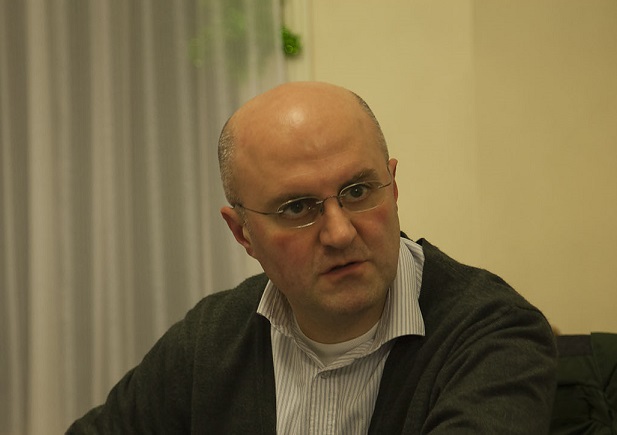in Russian / на русском – https://aga-tribunal.info/arevian_22-3-2020/
Garen Arevian, blogger, public figure (United Kingdom)
«Changing and maintaining the correct narrative in the face of historical revisionism»
Synopsis:
Since its inception, it is well-known that the Turkish Republic has consistently tried to change the historical “narrative” in regard to the Armenian Genocide, Armenian history, the lands of the Armenians and our presence as a native people in the area defined as the “Armenian Highlands”. The same effort was made by Soviet Azerbaijan – it was able to successfully forge itself as an “ancient” nation, created a national narrative and was able to use everything at its disposal as a governing Autonomous Soviet Republic to continue the ethnic cleansing of the Armenians of Nakhichevan and of Artsakh.
As a lobbyist and educator, I want to stress that the Armenians – which includes the Republic of Armenia, the people of Artsakh and the Diaspora – simply do not have a coherent narrative on the international arena when it comes to properly making the international community aware of the reality of the situation and safety of the people of Artsakh, at least not to the same organised extent that Azerbaijan does.
For example, the OSCE Minsk Group organised meetings between the leaders and representatives of Armenia and Azerbaijan take place every once in a while, the same points of the Madrid Principles are re-stated, and the leaders and organisers talk and just walk away until the next meeting. The representatives of Azerbaijan seem to repeat the same mantra such as Artsakh being an “inviolable part of ancient Azerbaijan”, that they can guarantee the safety of the Armenian population, that the Armenians must “answer for the Khojaly genocide” and that the “surrounding territories” must be returned.
The Armenians must not be shy of clearly stating the facts instead of playing around with the truth with diplomatic speak. The truth is that the Armenians can never feel safe under any Azeri rule, that any guarantees from the Aliev dynasty and the ruling powers of Azerbaijan cannot be taken with any seriousness and that no land can ever be returned. Most importantly, there is not such a thing as the “surrounding areas” of Artsakh – all those lands are Armenian lands historically, a natural part of the geographic reality of the continuity of Artsakh, and most importantly, those so-called “surrounding” areas are of critical geostrategic importance for the continued safety of the people of Artsakh. It must also be added that Turkey has conducted a proxy war with Artsakh and Armenia by its direct military assistance to Azerbaijan.
The author strongly believes that the Armenian side, the Armenian narrative, does not stress these important points and realities. In view of the 100th anniversary of the Shushi massacres, the continued and on-going ethnic cleansing of the Armenians throughout the years of Soviet rule, the Sumgait pogroms, the 1992-94 war for liberation and the 2016 Four Day War, it must be stressed with confidence that these are the realities that define the existential decisions of the Armenians of Artsakh in the face of false Azerbaijani narratives.
We should discuss this to form a concrete set of points which we must all constantly recite to those who propose unrealistic “solutions” to the Artsakh issue.

5 thoughts on “Garen Arevian. Changing and maintaining the correct narrative in the face of historical revisionism”